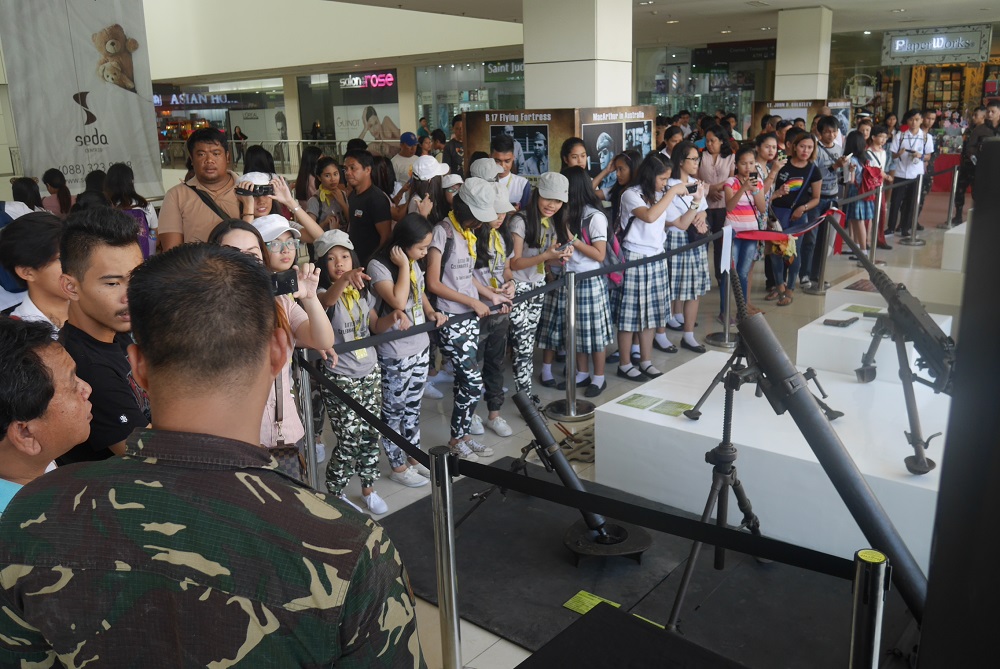The House of Representatives unanimously approved with a 195-0 vote on third and final reading on September 7, 2021 House Bill No. 9850, a measure integrating a comprehensive study of Philippine history during World War II (WW2) into the Higher Education curriculum.
The World War II in the Philippines Education Act mandates the study of World War II in the Philippines, to cover 50% of the mandatory Philippine History subject being offered under the general education curriculum in higher education courses.
It also directs the Commission on Higher Education (CHED) to develop, in close collaboration with the Philippine Veterans Affairs Office-Department of National Defense (PVAO-DND) the program to execute and implement the measure.
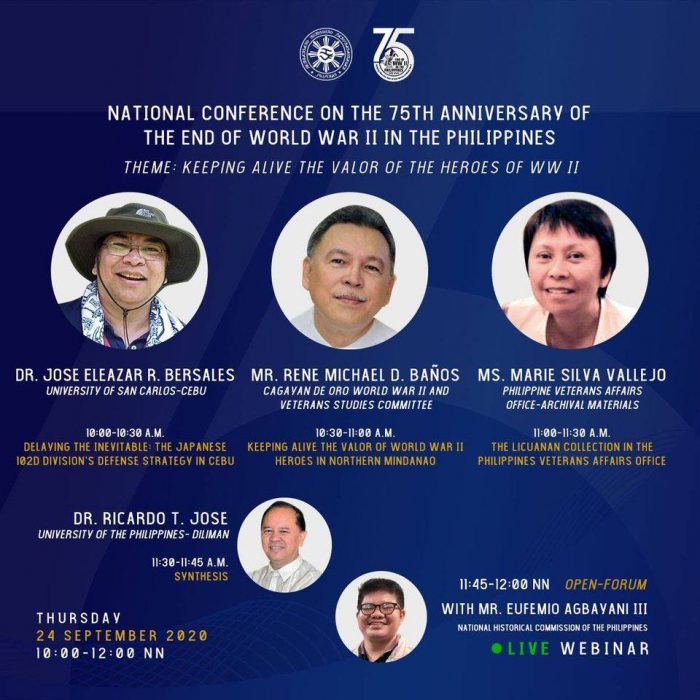
HB 9850 also encourages all higher education institutions to keep in their libraries adequate books, resources and reference materials on WW2 in the Philippines.
However, the measure has drawn criticism from a number of netizens, mostly regarding the apparent haste of its approval, and how it constitutes an inordinately big proportion of the Philippine History subject at the tertiary level.
“The bill mandates the integration of World War II in the Philippine History subject, requiring that it cover not less than 50% of the subject. Anybody who has taught Philippine history knows how ludicrous and out of touch with reality this sounds,” said John Lee Candelaria, a PhD candidate from Japan’s Hiroshima University in an opinion piece “The dangers of a World War II-centered Philippine History subject” posted Sept. 20 in Rappler.com.
“Covering the entirety of the nation’s history in sixteen weeks for a semester is a feat that requires cutting topics here and there…There was not much time to focus on the contemporary period, let alone World War II. The war itself lasted only a little over three years — 1941 to 1945. The war may be short, but it is an important historical event that had lasting implications for the country later on. Still, to dedicate half of the subject to the war discounts the equally critical historical events and periods consequential to our identity today.”
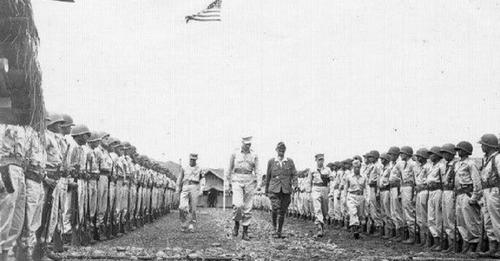
“Such focus on World War II also privileges this historical event over other wars the Philippines has been involved in, such as the Philippine Revolution against Spain, and the Philippine-American War. It also demotes other historical conflicts that also deserve attention, such as the conflict in Mindanao,” he observed.
Feedback
“I read Mr. Candelaria’s piece in Rappler and fully agree with it,” said Ricardo T. Jose, History Professor at UP-Diliman and acknowledged as the country’s foremost scholar on the Second World War in the Philippines and the Asia-Pacific.
“When I first learned about the bill, it was to develop a separate course, like the Rizal course, dedicated to WWII in the Philippines. But what happened was that it now mandates 50% of the Philippine History course in college to be devoted to WWII. Given the K-12 curriculum, which reduced the amount of time for Philippine history, it seems unfair to take 50% of the college course for WWII. While our WWII heroes have to be given credit and more awareness should be developed, I don’t think it should be at the expense of other aspects of Philippine history,” he explained.
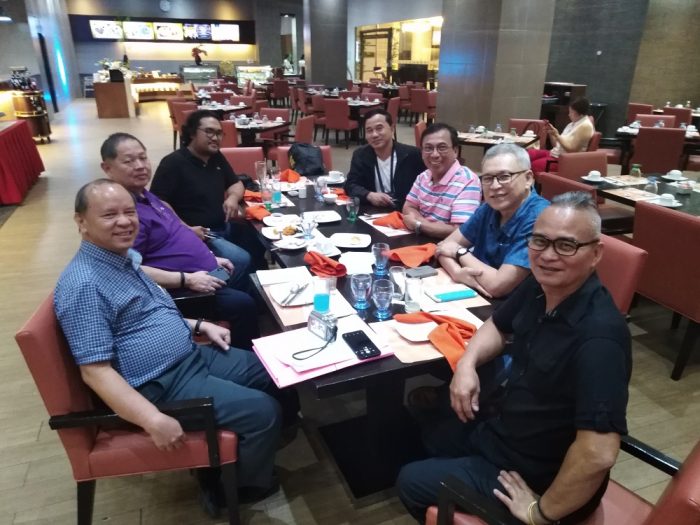
“My own personal feeling is it was not that well discussed and stakeholders were not involved in the formulation of the bill. A lot of positive input might have been provided to ensure a win-win situation.”
Jose specializes in military and diplomatic history, focusing on the Japanese occupation of the Philippines.
“Every Filipino should know of Filipino heroism in WWII,” said former Misamis Oriental Provincial Board Member Cromwell G. Generalao. “But to develop a strong nation, we should give more emphasis on pre-history and pre-colonial native Filipino achievements and the richness of the Filipino native culture in DepEd. I prefer the study and allow our youth to appreciate our own roots, our own capabilities, rather than reflecting on our identity to foreign influences and our responses to foreign interventions. It is more fundamental to learn of our own native culture that should be the basis of our socio-economic systems, instead of merely adopting American, Spanish, Chinese, Japanese, Indian, or Arab models.”
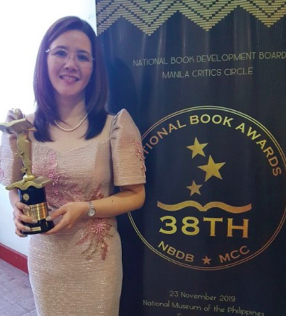
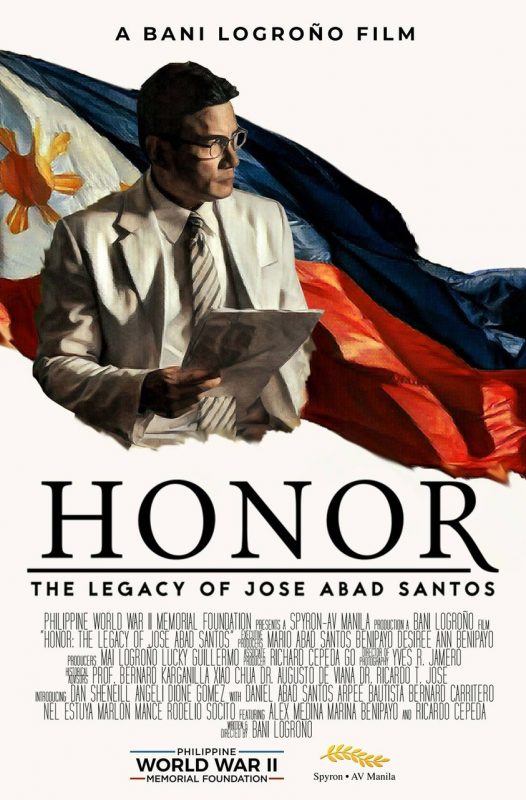
Desiree Ann Cua Benipayo, author of HONOR, a biography of World War II hero Jose Abad Santos, winner of the Nonfiction Prose prize at the 2019 National Book Awards, and executive producer of the similarly titled film documentary, expressed her apprehensions.
“You very well know my advocacy for WW2 education, but this HB was done blitzkrieg style. No discussion with university heads was done. To incorporate it into the general Phil. History course, and make it at least 50% of the syllabus is impossible. As it is, this course is already sorely lacking in class hours to include pre-colonial to contemporary history.”
“Instead of increasing and nurturing the interest of students in WW2 history, it will be a burden considering the required volume of readings. I am privy to and actually part of the group who lobbied for this around 3 years ago, but had left it due to my busy-ness. At the time, we were lobbying for a separate elective class on WW2 history only. Something interested students can get as their elective, with a very WW2-adept professor. This I truly supported.”
“To my surprise (and horror), the lobbying got radical and imposed this as a big chunk of the already jam-packed Phil History course! Of course the universities and professors will react.”
“When the HB was approved, I was anything but jubilant for the reasons I cited. Instead of creating interest in WW2, it will be a burden pa for both teachers and students. This bill wasn’t thought of thoroughly, sad to say.”
Benipayo is also the Vice President for Research and Education at the Philippine World War II Memorial Foundation (PhilWar) which aims to initiate, develop, and carry-out projects and activities that will educate and enlighten the Filipino people, especially the youth about our World War II history.
Jose shared a similar experience when he was asked a couple of times to comment on the draft bill.
“I did not know anything about the bill until someone brought it to my attention in February 2019, when I was emceeing an important international conference on the Battle of Manila. A note was slipped in saying there was a bill to that effect. I did not hear anything more about it until early this year, when I was asked if I could comment on a draft. I would have done so but I was so busy with my regular classes that I was unable to go over it. Besides, there was no timetable given and no follow up,” he said.
“Then a couple of months ago I was contacted by PVAO to ask if I could be a consultant on the bill. I was provided a hard copy of some materials. Again, there was no timetable and I thought they would contact me to schedule a meeting to discuss it. There was no follow up whatsoever, and the next thing I heard – via the mainstream media – was that the lower house had passed the bill.”
“While hearings were held, I was not aware of them. I asked the chair of the UP History Department if he knew about the bill, and he said he did not. So were any of the affected educational institutions – history departments of various universities and colleges consulted? It would have been good if they were, at least so there was more transparency and open discussion. Things like this are better discussed among those most affected, i.e. the teachers and history departments,” he added.
“I think Cong Roman’s intent is okay. Maybe the wording and implementation needs some adjustment,” said Miguel Angelo C. Villa-Real, First Vice President of the Philippine Veterans Bank Marketing Communications Division.
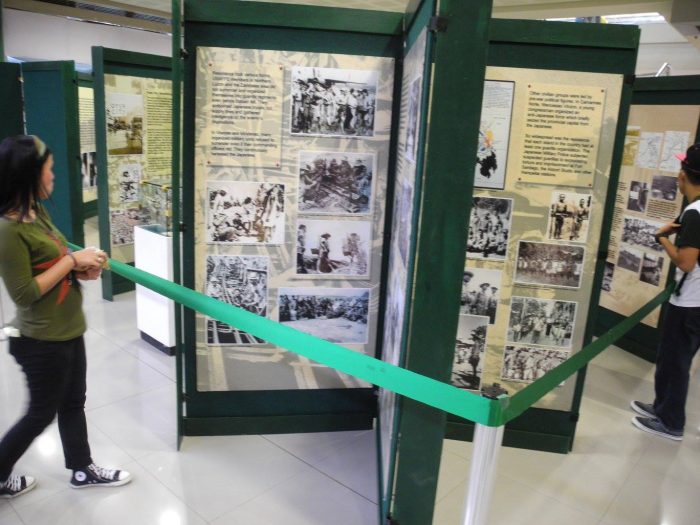
“But for the majority of Gen Z, the majority of them don’t have an active interest in history in general. I also agree with BGen Resty that more time must be given than the 1-2 pages in our current curriculum. Des is right that an elective course or a GE course may be more suited just to get that information base in their heads to spur interest but not to solve everything. It’s a start.”
“To connect to a broader audience, it has to connect in a personal way, as taught by Dr Rico (Jose) and what I’ve learned from 15 years of promoting WWII history around the country. I agree video is the way to go and that may awaken their interest since Gen Z are more visual. However, to reach them, they have to be short videos (5-7 minutes is long for them). Films are too long for their very short attention span, for most of them anyway. Basing it from research in the advertising and communications industry.”
“While legislating the study of WW2 is one way, care must be taken to ensure that the courses developed are truly interesting. We already have enough required textbooks that are of such lousy quality as to turn off the student from what would otherwise be interesting course material. I think the emphasis should be on interesting content, not requiring it,” noted Dennis Posadas, an amateur history buff who has written a few screenplays about the War. “You don’t need Congress to legislate interest. You just need to make it interesting.”
Genesis of the bill
However, one of the bill’s major proponents assures the measure was neither a spur-of-the-moment initiative, nor was it railroaded through Congress.
“It was the Philippine Veterans Affairs Office (PVAO) and the Department of National Defense (DND) in collaboration with groups of descendants of WW2 in the academe who started this,” said BGen Restituto L. Aguilar (ret), former chief of the PVAO Veterans Memorial and Historical Division, and now executive director of the National Historical Commission of the Philippines (NHCP).
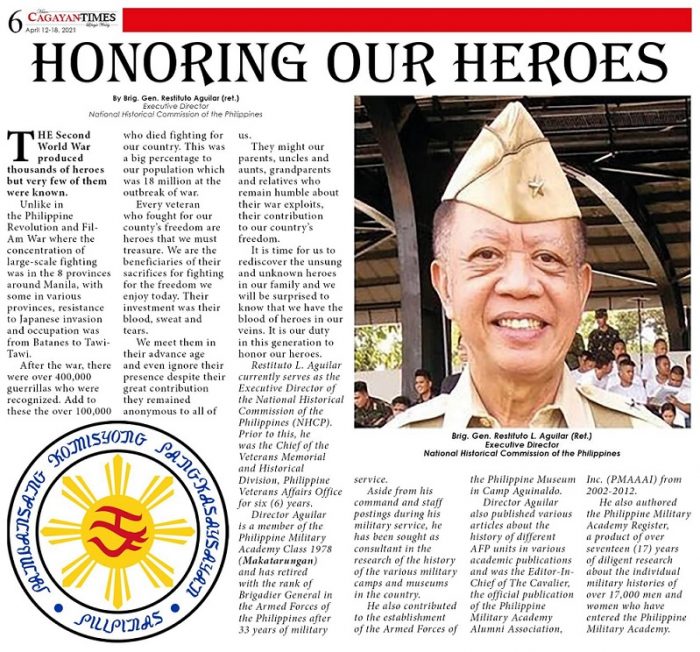
“Contrary to the impression that it was rushed, the bill was first drafted in 2019 and there were hearings conducted. I attended once at the Congress in 2019. I represented PVAO when I was still the Chief of Veterans Memorial and Historical Division. We also took into consideration the US Curriculum which was provided to me by Des,” Aguilar commented.
“The version of the War in the Pacific was what was adopted by the schools for California and perhaps Hawaii where the greater number of Filipino-Americans are residents. We crafted the version that would suit the Philippine situation. The set of documents were all submitted to the office of Congressman Romulo which was thoroughly studied by his staff.”
“The US curriculum was used to create the Philippine version,” says Marie L. Silva-Vallejo, a historical researcher and author of The Battle of Ising. “I have not read the US version but I believe for the Philippine version, it should be at deeper levels in each island, and citing specific guerrilla and civilian heroes. We should gather all the local WWII information that we have to craft a good version. There are a handful of local WWII books and articles written by veterans of the war and many are unpublished. A class on WWII might just bring out these unpublished works that are a part of our WWII history for preservation.”
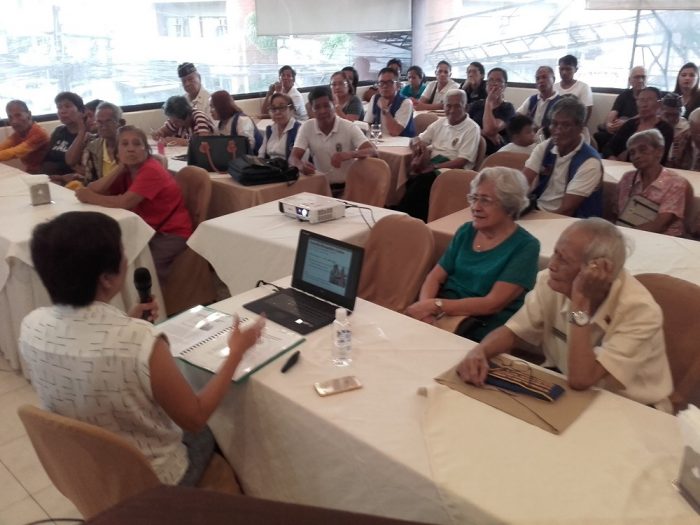
Ms. Vallejo and her team digitized surviving records of Filipino regular soldiers and guerrillas during World War II known as the Guerrilla Unit Recognition Files (GURF) from the Philippine Archives Collection of the U.S. National Archives and Records Administration (NARA) in Washington D.C. in June-October 2015 with the support of PVAO.
Phase I of the digitized files collectively known as the BGen. Francisco H. Licuanan, Jr. World War II Memorial Collection were uploaded at the PVAO website and now made available to the general public, educational institutions and libraries.
“The records were proof of the guerrillas’ resistance to drive out the invaders. Numerous names are in the records both guerrillas and civilians they fought with, or provided them the needed support to continue the fight,” Vallejo notes.
“From the information in the records, I was informed of an NHCP marker that was established to commemorate the town’s guerrilla fighters, meetings on an island’s war history held, school exhibits held, and professors using the stories in their classes. It is fortunate that the records were kept in the US Archives because it was offered to the Philippine government to keep.”
Aguilar further clarifies that the bill is still a work-in-progress and not yet set in stone.
“Unfortunately, the bill was so broadly stated but the details will be the next aspect to be tackled. The documents submitted may not satisfy the standards of those who are more knowledgeable than us but we tried our best. It was never our intention to take a big chunk of the History curriculum. The language in the bill was not ours,” he further noted.
“It was not a knee jerk reaction. It was a product of about 5 years of intense study by our shop at PVAO. You are aware of our commemorations of WW2 all over the country with PVAO on the lead. We hold ceremonies to honor our veterans and in all those awarding ceremonies, we give each veteran proper research-based on his military service record on what he or she did during the war.”
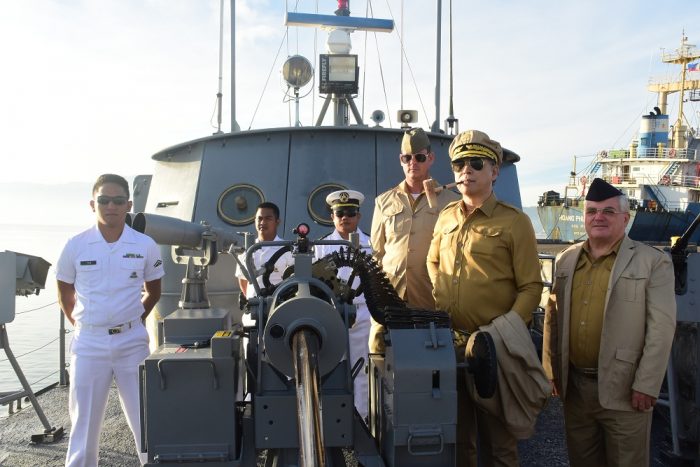
“In all those travels over the country, we always end up being requested by DepEd teachers for a copy of the citations we read for each veteran. Each year, we honor 20-40 veterans, and the teachers were amazed that there were local heroes in their midst and why study Rizal and other heroes while they have their own home grown ones.”
“I was part of those who were invited to say about the proposal submitted not based on the whims but based on feedback from students and professors on 2-day seminars conducted in 2 universities in Pangasinan, 1 in Baguio and 2 Academies (PMA and MAAP).”
“A proposal was initially made by SND to Chairman, CHED and that eventually was studied by Cong. Romulo who authored the bill. He sponsored one seminar in Pasig for selected students and teachers of various schools in Pasig, and the feedback was similar with the 5 seminars earlier conducted. The documents needed by the Congressman were part of the references in the possession of the committee.”
Further studies urged
Benipayo urged Cong. Romulo to further elucidate on the text of the bill since she had received many negative reactions to it.
“We all want WW2 history highlighted but as my historian friends put it, paano pa isisingit, eh kulang pa nga ang oras. This is a victory, but will be a hollow one when the teachers/professors are not comfortable implementing it,” she stressed.
“World War II in the Philippines is such a broad subject. I agree with Desiree that it would be better if this was an elective, rather than a standard syllabus in history class. Besides, the standard WW2 topics are covered already in history subjects,” said Tony Feredo, a member of the Pacific Air War History Associates (PAWHA), and recognized as one of the country’s leading authorities in military aviation and coastal artillery.
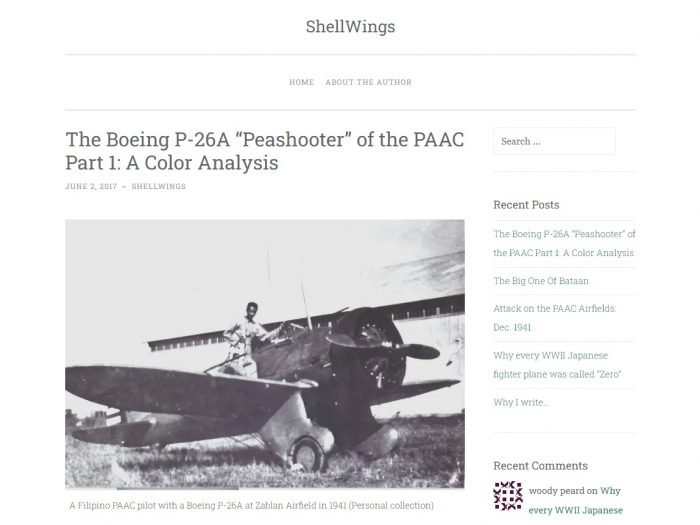
Feredo is an avid fan of history and specializes in military aviation and coastal artillery, which he posts in his blog Shellwings. His main interests are the air war, seacoast fortifications and military campaigns in the Philippines during the Second World War.
“Anything specific or details on subjects of interest in WW2 would be best tackled in an elective. Even professional historians and we WW2 enthusiasts are still learning to this day in spite of our vast collection of resources and decades of research,” he adds.
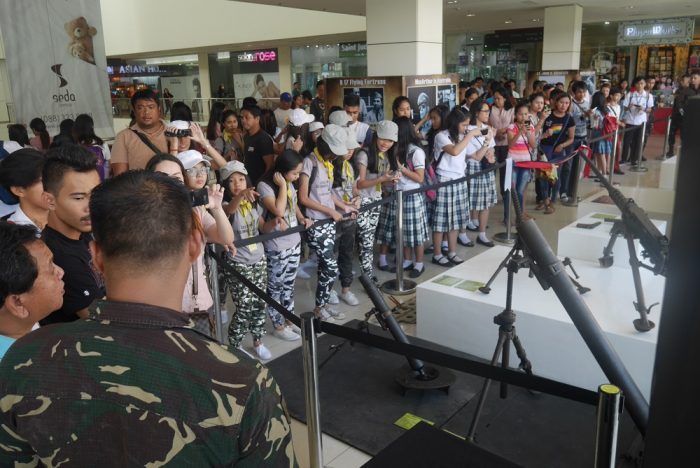
Benipayo concurs.
“Imagine if the elective class was enrolled in by young WW2 enthusiasts, ang saya siguro. They would not feel that they’re forced to read, but they would devour these readings and enjoy them too! That would be a victory if the house bill called for this. We’ll help in any way we can to make this house bill a more realistic and easily implementable one.”
Rationale and Process
Aguilar further explained the rationale for the bill and the process it has so far undergone at this point.
“The heroism of ordinary Filipinos remains to be told. The study of WW2 is beneficial at the regional and the local level because each family will be proud of their forebears,” he noted.
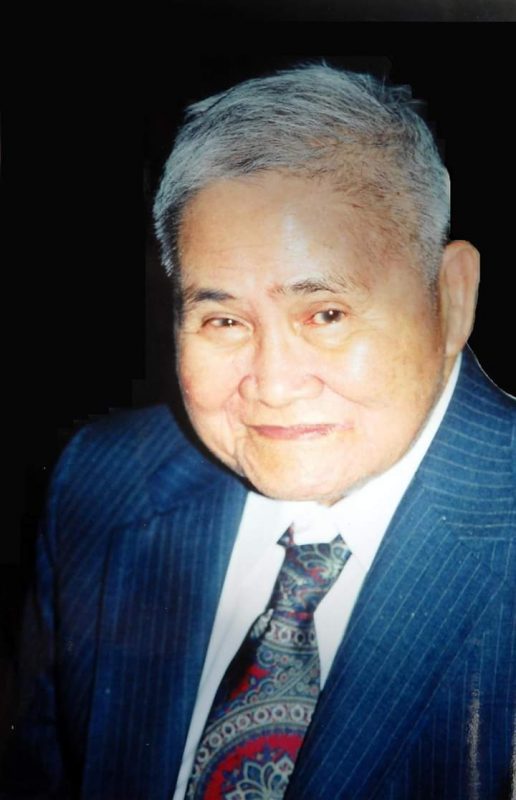
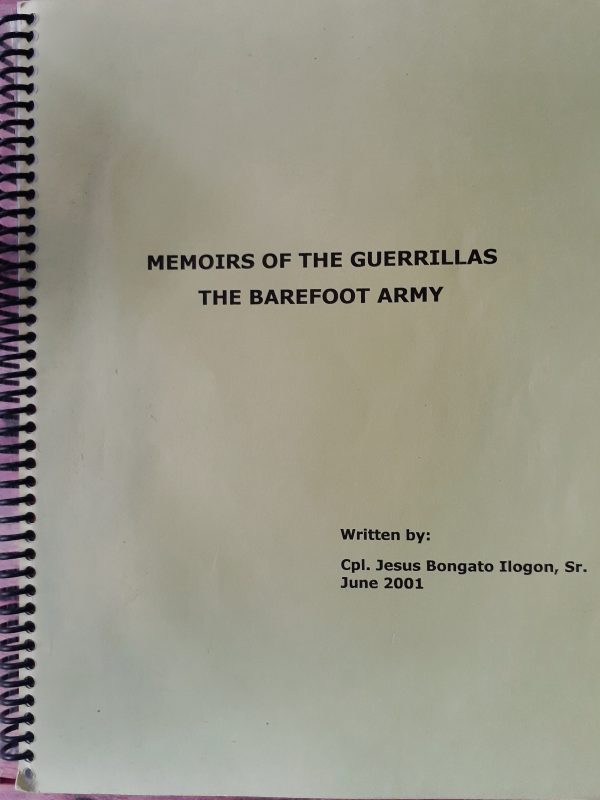
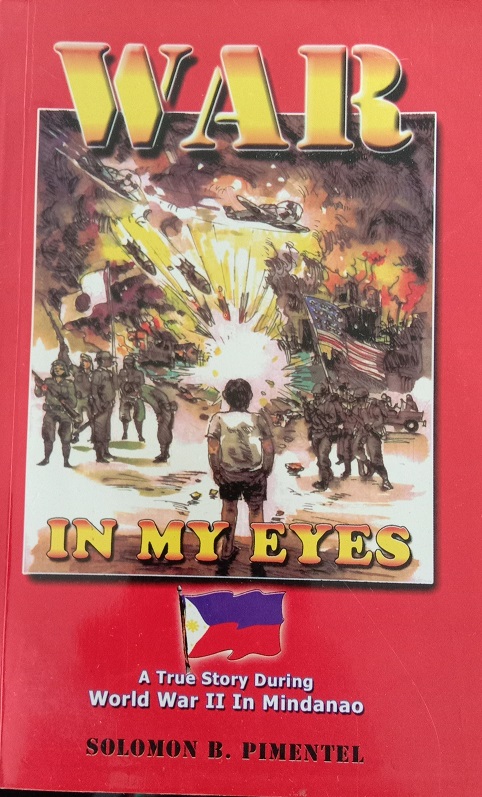
“There were still a lot to learn from WW2 as the records have just been retrieved from the US National Archives that were taken from the guerrillas in the course of making their benefit claims and were kept by the Americans for 70 years.”
In WW2, there were 18 million Filipinos. 1 million died and about 500,000 veterans were recognized by the US and Philippine governments. There were about 100,000 more unrecognized because of lack of documentation. Japanese occupation was all over the country and guerrilla operations were present in practically all provinces of the country from Batanes to Tawi- Tawi.
“I believe the study of World War II is a gateway to naming a lot of anonymous heroes that the country has not appropriately honored when they were still alive.”
“That was the background of all of these. It was a long process. It was not because Cong. Romulo is a descendant of a hero, but we have undergone the process of going through the study of its need through seminars aside from the comments during awarding ceremonies for the period from 2014 to 2019 when we can still freely roam around.”
Ways forward
Although they have their differences on how this initiative would be finally implemented, all agree that further spadework and research is needed before it could be brought to the classrooms.
“The intent was first to have a law because it is the most difficult part to do. The law is always said in broad terms. The details can be done in the Implementing Rules and Regulations (IRR) where those who are knowledgeable can share their inputs to improve whatever flaws that might be addressed,” Benipayo suggested.
“Remember, in the textbooks, WW2 is only discussed in a very short part. The Japanese bombed Pearl Harbor, invaded the Philippines, Bataan and Corregidor fell, the Japanese occupied the country and then MacArthur returned and liberated the Philippines. That was what the teachers were commenting on in our awarding ceremonies before. They have local heroes that they did not know contributed to their freedom.”
“Definitely our WW2 heroes have to be better known and appreciated. It might be noted that not all of them might be categorized as veterans, as there were many who gave up their lives who were never in uniform or never a part of the military,” Jose noted. “One only has to look at the one-thousand-peso bill. Only one of the three was a soldier; the others gave up their lives outside the military service.”
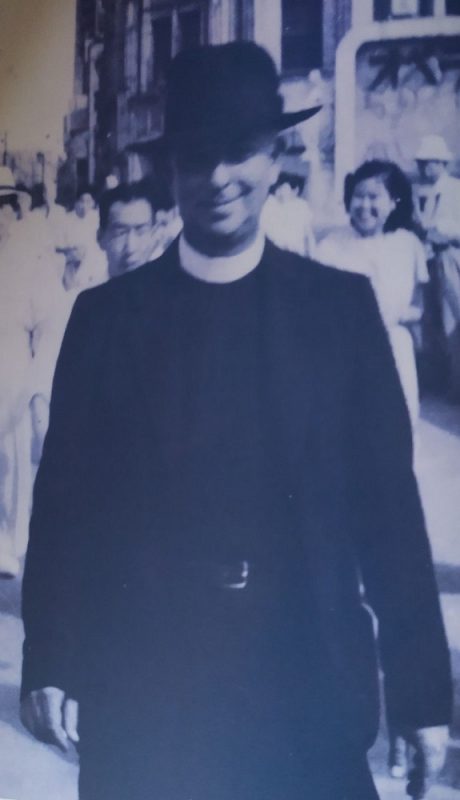
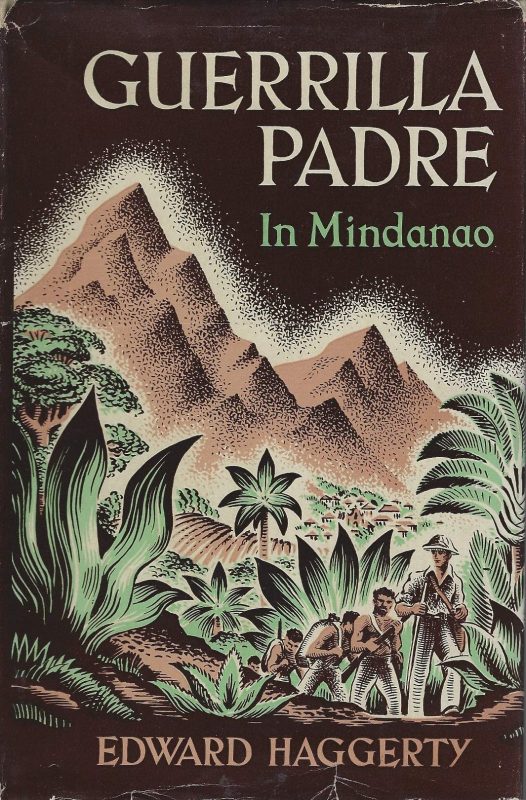

“From that initial exposure, a separate subject on WWII is offered with emphasis on local heroes, guerrillas and civilians. Integrate and emphasize each islands’ heroes to the eventual liberation plans so they are not isolated cases,” Vallejo added.
Aguilar agrees this would be the best way to move forward in advocating for the bill’s original intent.
“No matter how imperfect it may be now, let us just support it and make the necessary adjustments in the IRR,” he replied when queried on how the perceived shortcomings in the bill should be addressed.
“The IRR would include lots of explanatory notes which would answer most of the contentious aspects of the bill. Let us help each other because there are lawmakers who were co-authors of the bill that would push the so-called nationalistic version,” he noted. “In our initial discussions, they indicated the need to explain the role of the Hukbalahap all over the country. We have nothing against this, but we are pushing more for the regionalized or localized history of the war as indicated by the people where we went to.”
“Agree, I think we should help in the crafting of the IRR. The most difficult part is the first step which is legislation. Imagine since the end of the war nothing came even close to teaching this part greater than the 1 or 1 1/2 pages in the textbook about WW2 was done. Let us take advantage of it instead,” Villa-Real opined.
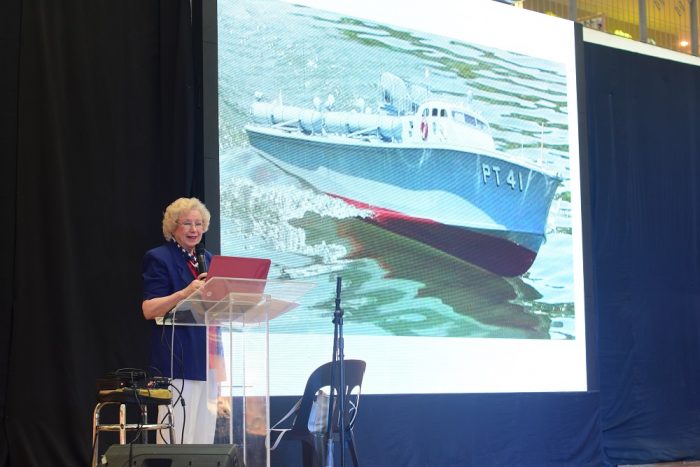
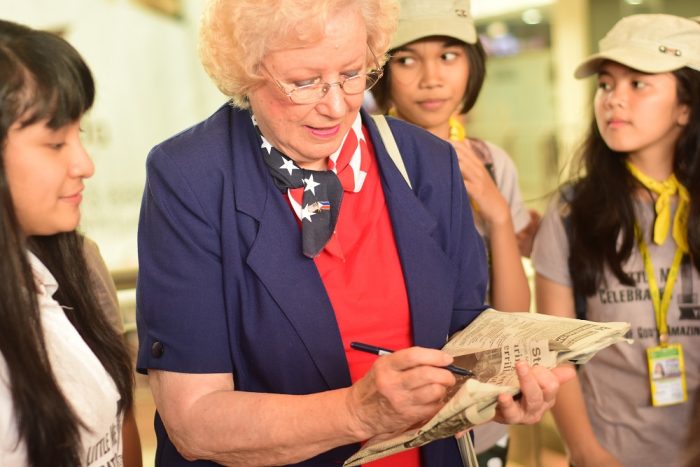
“WW2 history has always to be a part of a broader discourse or context of Philippine history. It can’t be studied in a vacuum. My take is that a portion of WW2 history lesson or course should be the LOCAL WW2 history,”. “That’s the only way to get students interested – if it’s closer to home, literally. In other words, the local WW2 stories should be part of the curriculum. That’s the only way it will connect and have an impact on young minds. Otherwise, memorization of dates, names and places na naman yan.”
-30-
